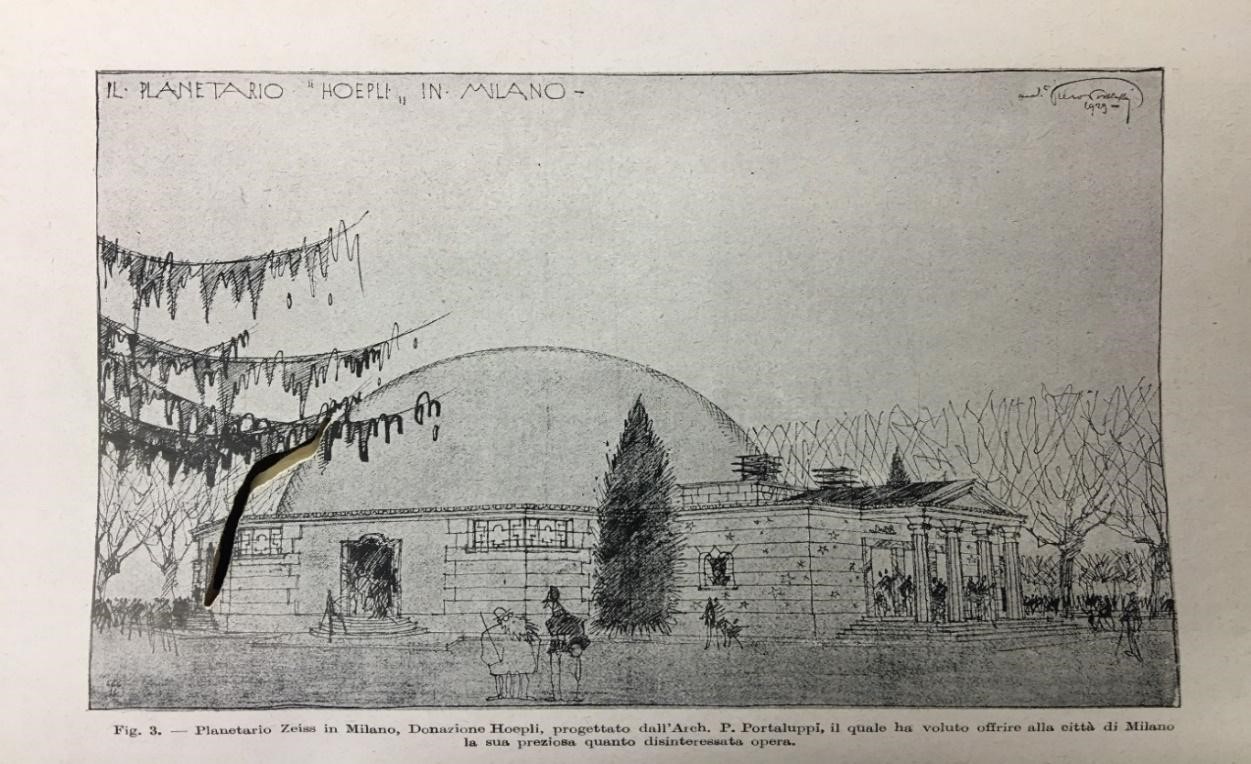The wonders of the Planetarium: intents and pitfalls for the implementation of a scientific facility in the midst of educational debates in Brazil in the 1930s

Published 2021-05-25
Keywords
- material school culture,
- national education conferences,
- planetarium,
- pedagogy exposition,
- cultural history
How to Cite
Abstract
This study aims to highlight some articulations the intent of which was to set up Brazil’s first Planetarium in Rio de Janeiro during the organization of the 4th National Education Conference and pedagogy exposition in 1931. The Conferences, promoted by the Brazilian Education Association (ABE), were founded on strategies for disseminating educational practices and producing material for Brazilian schools. This mechanism was a tool not only to provide visibility but also to promote the debate on the material conditions needed for public education. ABE developed actions aimed at directing and political organizing of the school education system in Brazil. Its work was marked by the holding of debates, surveys, research, exhibitions, libraries, publications, conferences and courses that contributed to the entire education process. However, its national prominence occurred through its organization of the National Education Conferences with effect from 1927. The Conferences were not only a way of giving visibility to modern and up to data schooling but also for fuelling the debate on material conditions needed for public education. The ABE Conferences served as a link between the federal government, the state government and civil society, as well as being an important strategy for disseminating ideas. They gave rise to a variety of themes, actions and proposals capable of disseminating educational causes on a national level, addressed at the Conferences and publicized by the press of that time. Among them, this text highlights the debate and the attempt to acquire Brazil’s first Planetarium which could have been part of the activities of the 4th National Education Conference scheduled for 1931. In addition, the debate could put the subject of planetariums into circulation – as a modern mechanism, a powerful instrument used not only by the population but also by science and education in other countries. This article addresses aspects of material school culture by exploring sources derived from the archives of the Brazilian Education Association and from the Brazilian periodical press, proposing relationships and analyses of the use of narrative of the rhetoric of modernity in education. The theoretical references to assist with analysis are linked to the perspective of studies on material school culture and cultural history.
References
Bacellar, Carlos. 2005. “Fontes documentais: uso e mau uso dos arquivos”. In Fontes históricas, editado por Carla B. Pinski. 23-79. São Paulo: Contexto.
BARRIO, J. B. M. – El Planetário: Um recurso Didáctico para la Enseñanza de la Astronomia- Tesis Doctoral, Universidad de Valladolid, Facultad de Educación y Trabajo Social Departamento de Didáctica de las Ciencias Experimentales y Geodinâmica, 2002
Burke, Peter. 1992. “Abertura: a nova história, seu passado e seu futuro”. In A escrita da história: novas perspectivas, Peter Burke, 7-32. São Paulo: Editora UNESP.
Burke, Peter. 2000. In As muitas faces da história: nove entrevistas, editado por Maria Lucia Pallares-Burke, 185-323. São Paulo: Editora UNESP.
Bloch, Marc. 2002. Apologia da história ou o ofício do historiador. Rio de Janeiro: Zahar.
Chartier, Roger. 1988. A história cultural entre práticas e representações. Trad. de Maria Manuela Galhardo. Lisboa: Difusão Editora.
Carvalho, Marta Maria Chagas de. 1998. Molde nacional e fôrma cívica: higiene, moral e trabalho no projeto da associação brasileira de educação (1924-1931). Bragança Paulista: EDUSF.
Carvalho, Marta Maria Chagas de. 2003. A escola e a república e outros ensaios. Bragança Paulista: EDUSF.
Gaspar da Silva, Vera Lucia e Gizele de Souza. 2016. Objetos de utilidade prática para o ensino elementar: museus pedagógicos e escolares em debate. Acessed on 13 May 2018. Br/hotsite_anais_ivspct_2/pdf_02/16%20%2011%20trabalho%20veragaspar%20e%20gizelesouza.pdf
Julia, Dominique. 2001. “A cultura escolar como objeto histórico”. Revista Brasileira de História da Educação 1: 9-43.
Kuhlmann Júnior, Moysés. 2001. As grandes festas didáticas: a educação brasileira e as exposições internacionais (1862/1922). São Paulo: USF/CDAPH.
Luca, Tânia Regina de. 2005. “História dos, nos e por meio de periódicos”. In Fontes históricas, editado por Carla B. Pinski. 111-153. São Paulo: Contexto.
Martins, Cláudio Souza. 2009. “O planetário: espaço educativo não formal qualificando professores da segunda fase do ensino fundamental para o ensino formal
Goiânia/GO. Mestrado, Universidade Federal de Goiás.
Meneses, Ulpiano T. Bezerra de. 1998. “Memória e cultura material: documentos pessoais no espaço público”. Estudos históricos v.11, 21: 89-104.
Napoleão, Tasso Augusto. 2013.Dos tempos do império aos observatórios robóticos. Accessad on 03 January 2019. http://site.mast.br/pdf_volume_2/dos_tempos_imperio_observatorios_roboticos.pdf
Pesavento, Sandra Jatahy. 1997. Exposições universais: espetáculos da modernidade do século XIX. São Paulo: Editora Hucitec.
Souza, Rosa Fátima de. 2000. “Inovação educacional no século XIX: a construção do currículo da escola primária no Brasil”. Cad. Cedes [online] vol.20, 51: 9-28. http://dx.doi.org/10.1590/s0101-32622000000200002.
Souza, Rosa Fátima de. 2007. “História da cultura material escolar: um balanço inicial”. In Culturas escolares, saberes e práticas educativas: itinerários históricos editado por Marcus Levy Bencostta, 163-169. São Paulo. Cortez.
VIDAL, Diana Gonçalves. 2005. Culturas Escolares: estudo sobre práticas de leitura e escrita na escola pública primária (Brasil e França, final do século XIX). Campinas, SP: Autores Associados.
Steffani, Maria Helena e Fernando Vieira. 2013.Planetários. Accessed on 03 January 2019. http://site.mast.br/pdf_volume_2/planetarios.pdf

